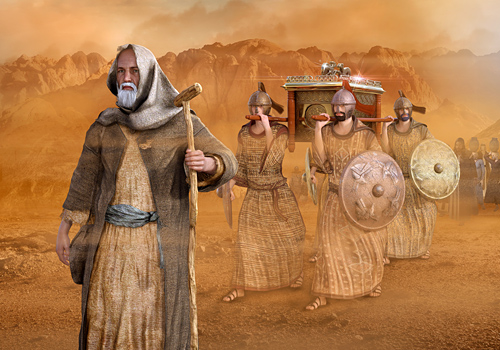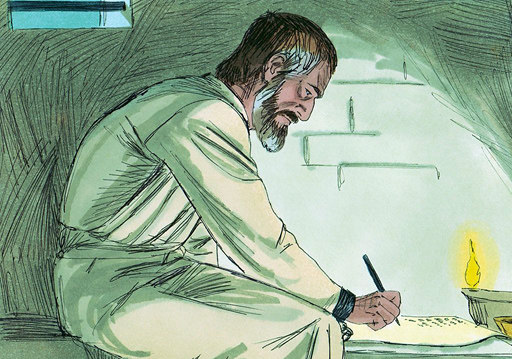Introduction to the Books of 1 and 2 Kings
This page is an introduction and summary for the books of 1 & 2 Kings in the Christian Bible. (1 & 2 Kings are also in the Jewish Bible, but I'll be covering them from a Christian perspective).
I'm doing several new pages on the first five books of the Bible (the books of Moses, also called the Pentateuch), and the "former prophets" which are the books of Joshua, Judges, 1 & 2 Samuel and 1 & 2 Kings.
I'll be working on these new pages in parallel as I study for my Old Testament exam on the 10th of June, and adding to them as I study. I figured I might as well be writing my study notes up online as web pages, since now that this website is set up, it's not that much harder than just doing them in a Word document (or something like that).
Introduction to 1 & 2 Kings
The books of 1 & 2 Kings follow on from the books of 1 & 2 Samuel. Their name in the Hebrew Bible is just "Kings", the same as the English name.
1-2 Kings begins with the reign of Israel being transferred from David to his son Solomon. 1 & 2 Kings covers Solomon's reign as king, up to the division of the kingdom into two separate kingdoms of Israel in the North, and Judah in the South.
Then we read the story of the invasion and exile of the Northern kingdom (Israel) in 722 BC by the Assyrians. And then, later, the invasion and exile of the Southern kingdom (Judah) and the destruction of its capital Jerusalem in 586 BC by the Babylonians. The story is told from the perspective of the prophets.
Before Reading or Studying Kings
Before reading or studying the Bible, it's a good idea to take a short break — to think about where the book of Kings came from, and how it's relevant to your own modern life right now. Christians believe that the Bible is the inspired Word of God. That is, the words in Kings were recorded by people in the distant past, as given to them by God.
Also, the Bible is a living document — it's the living word of God. This is a foreign concept to most of our modern culture today, so it takes some time to think about, and get used to the idea of it. Many people think of God as not speaking directly to us. Yet as Christians, God does speak to us directly, in words — and the way God does this is through his words in the Bible. This means that it's directly relevant to us, personally, as we read it. As you read the words of Kings (even if you don't really believe in this kind of stuff yet, you can still try doing this, as an experiment), imagine that God is speaking to you, personally, and directly.
Also, the Bible is an ancient document. It's very old — and the first few books of the Old Testament, especially so. A lot of things have changed since God's words were first recorded by humans. This means a lot of the Bible can be hard to understand in our modern world today. Which is why we're so lucky to have so much access to resources that can help us to understand it. As you read the words of Kings, also imagine that you're back then, in the days when it was written. This can help a lot with understanding the meaning (of some parts of the Bible more so than others). Learning about what the words meant in their original setting is a really good place to begin trying to understand what they mean now. Keep this idea in mind as you read the rest of this web page, and as you read the Bible.
Also, the Bible is a precious document. Its true value is hard to imagine. It's probably fair to say that nearly everyone today underestimates its value — at least in the free and well-off countries, where it's very easy (and cheap) for anyone to obtain a copy of the Bible, or read it on the internet. To help get a better appreciation for the value of the Bible, think about how God's word has travelled down through the centuries, and been preserved by copyists, translators, printers, and other people. At times parts of it were lost, and then found again. In recent years, thousands of ancient copies of scrolls have been found, which were meticulously copied by hand over and over, for thousands of years. In some places and at some times, to own a copy of the Bible (or even to believe in it) would bring the death penalty. This included many of those who wrote parts of it, or were written about in it (such as the Apostles of Jesus).
Interesting Facts about 1 and 2 Kings
- Jewish tradition identified Jeremiah as the author of 1 and 2 Kings (and Lamentations, and his own book named Jeremiah).
- A key event in the book of Kings is the breaking up of Israel into two separate kingdoms, that of Israel (in the North) and that of Judah (in the South, which included the City of Jerusalem).
- Another key event is the military take over (invasion) of the Northern kingdom by the Assyrians in 722 BC.
- The notes for 2 Kings 17 in the NIV Zondervan Study Bible say that "The mass deportation policy of the Assyrians was a companion piece to the brutal and calculated terror initiated by Ashurnaspiral and followed by all his successors. It was intended to forestall revolts, but like all draconian measures, it simply spread misery and engendered hatred. In the end, it hastened the disintegration of the Assyrian Empire".
- 2 Kings 17:7-17 explains from God's point of view why this invasion happened. It starts off saying it was because they had sinned against the Lord their God, who rescued them from Egypt. And then goes on to describe more details of their sins, including that they (the Israelites) followed the detestable practices of the other nations, and even that "They sacrificed their sons and daughters in the fire".
- The book of 2 Kings ends with the military take over (invasion) of the Southern kingdom of Judah by the Babylonians is 586 BC. Jerusalem, and the temple that Solomon built are destroyed, and thousands of Israelites are taken into captivity. This happens for basically the same reasons as the Northern kingdom was taken over.
- The fall of the Israelites was predicted in the book of Deuteronomy, near the end of the book, in Deuteronomy 31:14-29. Moses, in one of the final things he says before his death as an old man, says, among other things, that "I know that after my death you are sure to become utterly corrupt", and "In days to come, disaster will fall on you because you will do evil in the sight of the Lord and arouse his anger". Also near the end of Deuteronomy is a long list of curses which it says will befall Israel if they sin in this way (Deuteronomy 28:15-68). The list of curses ends with the Lord sending them back to Egypt "on a journey I said you should never make again" and will live as slaves. This is what happens to many (probably most) of the Israelites at the end of 2 Kings: "At this, all the people from the least to the greatest, together with the army officers, fled to Egypt".
- Among those taken into captivity/exile in Babylon is the prophet Daniel, featured in the Book of Daniel, the major apocalyptic book of the Old Testament.
- I'll write more of this up soon...
Read 1 & 2 Kings
Click here to read the book of 1 Kings, or the book of 2 Kings.
Click here to see 1 Kings or 2 Kings in their original language of Ancient Hebrew. Or here to read 1 Kings or 2 Kings in Hebrew and English side-by-side.








